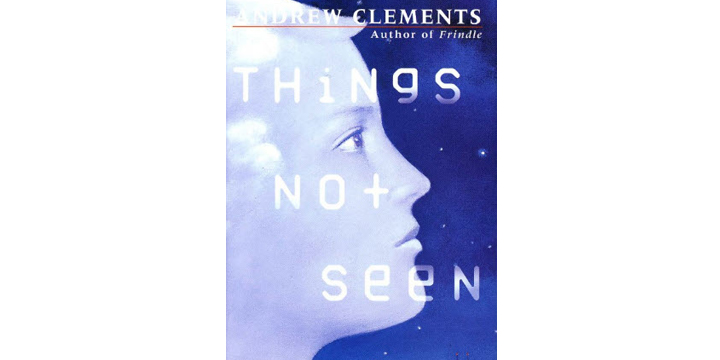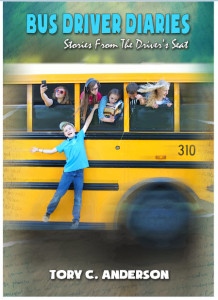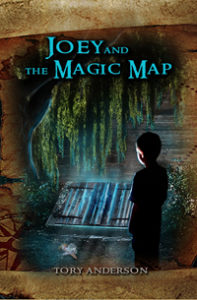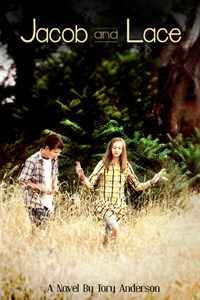I was young when I saw the original Invisible Man. It was in black and white and a little frightening as the process that made the man invisible led him into criminal insanity. Then there was the Invisible Woman. It was funny (and titillating) since the invisible woman was running around naked, though unseen. Andrew Clements does something quite different in his book Things Not Seen. Instead of writing a crime thriller or a comedy, he tries to bring invisibility into the real world—and does it with a fair amount of success.
Clements hooked my interest when I quickly realized he was taking the question of invisibility seriously. This wouldn’t be some Marvel style superpower or a prurient teenage fantasy. This book asks all the questions that would really be asked if you woke up one morning and found that you could no longer be seen by anyone in the world, not even by yourself in the mirror. This, of course, is impossible in our world. To actually see it happen would push man peoples’ psyches to the edge.
Clements did a great job with the “discovery” scene. This scene is important as it sets the tone for the entire book. It is this scene that sets it apart from any of the lesser things it could have been. Bobby’s difficulty, and then his parents’, at accepting his invisibility is well done. It’s kept just this side of freak out. His father (a physicist) staring from across the kitchen to his mother’s stammering “Knock it off, Bobby” as she sits next to him at the breakfast table she tries to process the impossible, rings true. Clements controlled the moment very well. It was satisfying to read.
Next Clements had to set the boundaries on how invisibility works in the world he is creating—pretty much the world we live in now. It turns out that anything that goes into his body disappears and stays invisible when it comes out (digestive waste), but anything that stays on the outside of his body stays visible—ergo, clothes. This provided a writing challenge and opportunity for Clements as the setting is Chicago in March. Bobby—when he tires of being cooped up in his home—can’t just go running around in the freezing temperatures of Chicago naked. Eventually it warms up enough that Bobby does spend a lot of time outdoors naked but unseen. The cold weather also allows Bobby the opportunities to get out completely bundled up and wearing sun glasses. Ironically, this allows his invisibility to be “hidden.” Clements is clever in dealing with Bobby’s maturity (he’s fifteen, but quite intelligent) in relation to running around naked. He see’s himself as a Greek Spartan, suffering the cold in the nude, with courage and strength. I liked that take.
Clements gracefully stayed away from the teenage boy fantasies of invisibilities of pulling pranks and sneaking into girl’s dressing rooms. The quality and seriousness of the writing naturally keeps from coming anywhere close to those areas. The real questions and problems of Bobby’s invisibility don’t allow time for fantasy. The closest it comes to fantasy (which isn’t fantasy at all) is when Bobby befriends a blind girl who eventually finds out about his invisibility. The questions of blindness and invisibility bring up thoughtful questions, by the way. Her parents also find out about his invisibility. The girl’s mom is always in the room when her blind daughter’s naked, invisible boyfriend comes to visit. It’s serious and humorous at the same time.
The book takes the direction of Bobby’s parents keeping his invisibility from the world so that he won’t be taken away and studied and possibly used by science or government. This makes sense. Of course, it also makes sense in this world that you can’t have the child of a civically involved couple just disappear without there being questions. I was happy when I detected the beginnings of this trouble in the book. The thrilling development of this trouble rang true and was fun to read. In the end I found the book a pleasure to read. Of course, there was difficulty in explaining the source of the invisibility, but it was handled well enough. I was satisfied to see a “superpower” treated seriously in my reality, instead of in a typical superhero fantasy. It was a boon to see it done as well as Clements did it. Bobby is no superhero, but he becomes quite the human being through his experience. A graceful, enlightened human being is a superhero to me.
These books by Tory Anderson are now available on Amazon in Kindle and paperback format:





